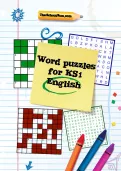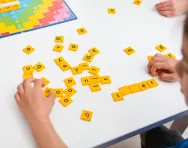TheSchoolRun.com closure date
As we informed you a few months ago, TheSchoolRun has had to make the difficult decision to close due to financial pressures and the company has now ceased trading. We had hoped to keep our content available through a partnership with another educational provider, but this provider has since withdrawn from the agreement.
As a result, we now have to permanently close TheSchoolRun.com. However, to give subscribers time to download any content they’d like to keep, we will keep the website open until 31st July 2025. After this date, the site will be taken down and there will be no further access to any resources. We strongly encourage you to download and save any resources you think you may want to use in the future.
In particular, we suggest downloading:
- Learning packs
- All the worksheets from the 11+ programme, if you are following this with your child
- Complete Learning Journey programmes (the packs below include all 40 worksheets for each programme)
You should already have received 16 primary school eBooks (worth £108.84) to download and keep. If you haven’t received these, please contact us at [email protected] before 31st July 2025, and we will send them to you.
We are very sorry that there is no way to continue offering access to resources and sincerely apologise for the inconvenience caused.
Universal Credit explained for parents of primary school children

Universal Credit is a means-tested benefit for people of working age who have a low income. It replaces six existing means-tested benefits, combining them into a single monthly payment. These benefits are:
- Income Support
- Income-based Jobseeker’s Allowance (JSA)
- Income-related Employment and Support Allowance (ESA)
- Housing Benefit
- Child Tax Credit
- Working Tax Credit
Are you eligible for Universal Credit?
The amount of Universal Credit you may be entitled to can be hard to work out, so use the Turn2Us Benefits Calculator to find out whether you’re eligible, and how much you may be able to claim.


Free puzzle packs for your child!
- Word Puzzle Packs
- Numeracy Puzzle Packs
- Challenging and exciting | Boost key skills
How much Universal Credit could you get?
Universal Credit is a ‘basic allowance’ based on your household’s income.
On top of this, there are ‘additional elements’ that may entitle you to more money. Some of these relate to being responsible for a child or a qualifying young person (basically, a child aged 16-20 who is in approved education or training) who normally lives with you.
The Child Element is £237.08 per child, per month. If your child was born before April 6 2017, the monthly payment is £282.50 per month and is known as the Family Element.
Usually, there is a two-child limit, so if you have three children or more, you won’t be entitled to any more money. There are certain exceptions, such as having a multiple birth or adopting a child: you can find out about these on the Government’s benefits website.
The Childcare Element is a contribution towards the cost of registered childcare while you’re at work. Generally, if you’re part of a couple, both of you need to be in work (subject to certain exceptions), although there’s no set amount of hours that you should be working.
You will get 85% of your childcare costs paid, up to £646.35 for one child, and £1,108.04 for two or more children. Again, there is a two-child limit.
The Disabled Child Element is available if your child or qualifying young person is disabled and entitled to disability benefits.
How to apply for Universal Credit
You’ll need to create a Universal Credit account online, and have the following information handy:
- Your bank details
- Information about your housing, e.g. how much rent you pay
- Details of your income, e.g. payslips
- Details of any savings or investments
- Details of how much you pay for childcare.
How to use Universal Credit
Some elements of Universal Credit must be used for specific purposes.
For example, the Childcare Element must be used to pay for approved childcare (which can include before- and after-school childcare for school-age children). You must be able to provide proof of this.
Other elements, including the Family or Child Element, can be used as you wish to support you bringing up your child(ren).








